Our Team

Accomplished climate change adaptation academic and consultant with 15 years’ experience in climate adaptation and resilience building in Small Island Developing States. Dr Canevari is the CEO and Founder of ITACA Solutions. Over the past years, she has supported the design and provision of climate services for the public and private sector, including the development of vulnerability, climate risk assessments and adaptation plans, decision support tools for financial institutions, analysis of climate resilience in value chains, and the design and delivery of training and capacity building programs.
Laura Canevari
CEO and Founder
Accomplished climate change adaptation academic and consultant with 15 years’ experience in climate adaptation and resilience building in Small Island Developing States. Dr Canevari is the CEO and Founder of ITACA Solutions. Over the past years, she has supported the design and provision of climate services for the public and private sector, including the development of vulnerability, climate risk assessments and adaptation plans, decision support tools for financial institutions, analysis of climate resilience in value chains, and the design and delivery of training and capacity building programs.

Lucas is a Fisheries Engineer with a strong foundation in sustainable aquaculture, seafood processing, and the engineering behind the fishing industry. His expertise extends to coastal climate adaptation, blue economy, food security, and climate finance. At ITACA, he leads and supports work across proposal development, project management, and stakeholder coordination—building partnerships with governments, NGOs, and the private sector. His focus lies in designing finance-access strategies that center on community engagement and capacity building. Lucas is particularly passionate about the intersection of ocean technology, innovation, and climate change.
Lucas Mira
Blue Economy Senior Associate
Lucas is a Fisheries Engineer with a strong foundation in sustainable aquaculture, seafood processing, and the engineering behind the fishing industry. His expertise extends to coastal climate adaptation, blue economy, food security, and climate finance. At ITACA, he leads and supports work across proposal development, project management, and stakeholder coordination—building partnerships with governments, NGOs, and the private sector. His focus lies in designing finance-access strategies that center on community engagement and capacity building. Lucas is particularly passionate about the intersection of ocean technology, innovation, and climate change.
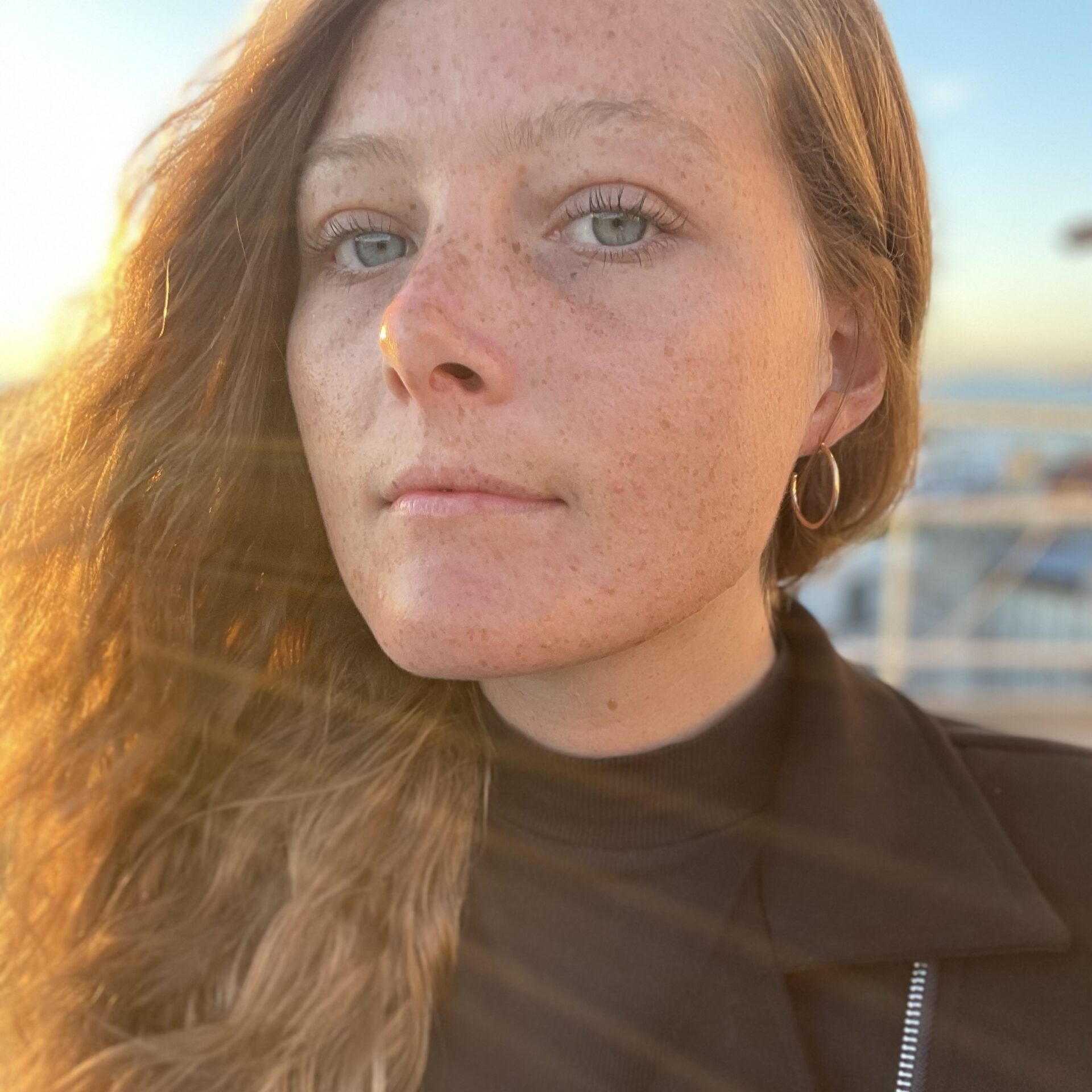
Passionate Operations Manager with a strong focus on driving efficiency and excellence in complex and evolving environments. She brings a blend of honed skills in strategic planning, organizational development, and innovative leadership. After years on the frontlines of disaster response, she has shifted her focus to climate resilience and adaptation - a natural progression driven by her commitment to supporting local responses to emerging risks. Her work is grounded in equity, sustainability, and creative solutions.
Samantha Busch
Operations Manager
Passionate Operations Manager with a strong focus on driving efficiency and excellence in complex and evolving environments. She brings a blend of honed skills in strategic planning, organizational development, and innovative leadership. After years on the frontlines of disaster response, she has shifted her focus to climate resilience and adaptation - a natural progression driven by her commitment to supporting local responses to emerging risks. Her work is grounded in equity, sustainability, and creative solutions.
Key Subject Matter Experts

Gigi has over 30 years of experience working in aquaculture and the fishing industry and has worked in over 80 countries. With an M.Sc in Animal Science, specialised in aquaculture, and a Master of International Economy and Finance, Gigi has an extensive experience in multilateral trade assistance projects and in the design of fisheries/aquaculture programme strategies and Action Plans for ACP and developing countries. His work covers the whole fisheries value chains for the development of sustainable fishery/aquaculture policies, poverty reduction and livelihood strategies, as well as considerations on sustainable approaches for integrated fishery and aquaculture resources.
GianLuigi Negroni
Fisheries and Aquaculture Expert
Gigi has over 30 years of experience working in aquaculture and the fishing industry and has worked in over 80 countries. With an M.Sc in Animal Science, specialised in aquaculture, and a Master of International Economy and Finance, Gigi has an extensive experience in multilateral trade assistance projects and in the design of fisheries/aquaculture programme strategies and Action Plans for ACP and developing countries. His work covers the whole fisheries value chains for the development of sustainable fishery/aquaculture policies, poverty reduction and livelihood strategies, as well as considerations on sustainable approaches for integrated fishery and aquaculture resources.

Claudia is a biologist and geographer specialised in modelling and mapping biodiversity and ecosystems services. Her interests include biodiversity and ecosystem services conservation, wildlife-human interactions and global spatial patterns of biodiversity. She has a bachelor's degree in Biology from the National Autonomous University of Mexico (UNAM), a Master’s degree in Biodiversity and Conservation from the University of Southampton and a PhD in Geography from King’s College London. Her research projects are focused on modelling and mapping species and ecosystem services of temperate and tropical ecosystems to address different conservation issues.
Claudia Gutierrez
GIS Expert
Claudia is a biologist and geographer specialised in modelling and mapping biodiversity and ecosystems services. Her interests include biodiversity and ecosystem services conservation, wildlife-human interactions and global spatial patterns of biodiversity. She has a bachelor's degree in Biology from the National Autonomous University of Mexico (UNAM), a Master’s degree in Biodiversity and Conservation from the University of Southampton and a PhD in Geography from King’s College London. Her research projects are focused on modelling and mapping species and ecosystem services of temperate and tropical ecosystems to address different conservation issues.

Slendy is a passionate advocate for the circular economy, with a background in civil engineering and extensive experience in project management, the energy sector, and circular business models in both the public and private sectors. With a strong focus on sustainability, she is committed to driving innovative solutions that promote circularity in all its forms, ecodesign, industrial symbiosis, circular projects, advisory, and education. She has participated in several publications and has received recognition for her contribution to the circular economy in the industrial sector. She is the coordinator of the regional circular economy strategy in Antioquia - Colombia.
Slendy Díaz
Circular Economy Expert
Slendy is a passionate advocate for the circular economy, with a background in civil engineering and extensive experience in project management, the energy sector, and circular business models in both the public and private sectors. With a strong focus on sustainability, she is committed to driving innovative solutions that promote circularity in all its forms, ecodesign, industrial symbiosis, circular projects, advisory, and education. She has participated in several publications and has received recognition for her contribution to the circular economy in the industrial sector. She is the coordinator of the regional circular economy strategy in Antioquia - Colombia.

David holds a PhD in Applied Geomorphology from the Australian National University and a Masters of Social Science from the University of Queensland. He taught and researched in the field of coastal processes and management and human - environment interactions at the coast and was Director of the Geography & Environmental Management Program at UQ (2003-2011). He has authored or co-authored about 75 refereed publications and has over 190 other contributions (conference papers, reports, etc.) and conducted research and/or delivered field courses in Antarctica, Australia, Hong Kong, Italy, Southwest Pacific, Cambodia and Vietnam.
David Neil
Coastal Management Expert
David holds a PhD in Applied Geomorphology from the Australian National University and a Masters of Social Science from the University of Queensland. He taught and researched in the field of coastal processes and management and human - environment interactions at the coast and was Director of the Geography & Environmental Management Program at UQ (2003-2011). He has authored or co-authored about 75 refereed publications and has over 190 other contributions (conference papers, reports, etc.) and conducted research and/or delivered field courses in Antarctica, Australia, Hong Kong, Italy, Southwest Pacific, Cambodia and Vietnam.

Rodolfo has a Ph.D. in Coastal and Port Engineering and is a Senior Researcher and Professor of Civil Engineering at the Institute of Engineering of the National University of Mexico. Since 1995 Rodolfo has been the Head of the Coastal and Oceanographic Group at UNAM and at the Mexican Centre for Ocean Renewable Energies. He has been the Mexican delegate and the Latin American Regional Coordinator in the Excellence Center for Development Cooperation and the Mexican Delegate in the Ocean Energy System. As an author or co-author, he has participated in over 650 publications and more than 100 technical reports.
Rodolfo Silva Casarín
Nature-based Solutions Expert
Rodolfo has a Ph.D. in Coastal and Port Engineering and is a Senior Researcher and Professor of Civil Engineering at the Institute of Engineering of the National University of Mexico. Since 1995 Rodolfo has been the Head of the Coastal and Oceanographic Group at UNAM and at the Mexican Centre for Ocean Renewable Energies. He has been the Mexican delegate and the Latin American Regional Coordinator in the Excellence Center for Development Cooperation and the Mexican Delegate in the Ocean Energy System. As an author or co-author, he has participated in over 650 publications and more than 100 technical reports.

Rachael holds a Ph.D. in Environmental Engineering and Science from Clemson University, USA, and Masters in Biostatistics from the University of Reading, UK and the Pennsylvania State University, USA. She has over 35 years of experience in teaching and the application of Biostatistics in health, agriculture, environmental science, and other scientific disciplines in the Caribbean. While at the University of Trinidad and Tobago she developed graduate programmes in Environmental Science and Management & Health Administration. She worked as a Consultant with the Caribbean Community Climate Change Centre, Belize and the Cropper Foundation, Trinidad. She currently works as a Data Scientist.
Rachael Williams
Data Scientist
Rachael holds a Ph.D. in Environmental Engineering and Science from Clemson University, USA, and Masters in Biostatistics from the University of Reading, UK and the Pennsylvania State University, USA. She has over 35 years of experience in teaching and the application of Biostatistics in health, agriculture, environmental science, and other scientific disciplines in the Caribbean. While at the University of Trinidad and Tobago she developed graduate programmes in Environmental Science and Management & Health Administration. She worked as a Consultant with the Caribbean Community Climate Change Centre, Belize and the Cropper Foundation, Trinidad. She currently works as a Data Scientist.
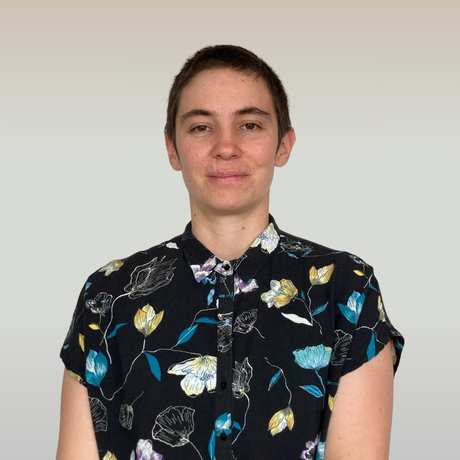
Dr. Cristina Salazar is a specialist in educational innovation through the integration of digital technologies in both formal and non-formal education, as well as project-based learning. She has 7 years of experience as a researcher and educator at the University of Barcelona, where she participated in various European projects on educational innovation and research. These projects focused on the use of digital tools to foster meaningful learning experiences, the creation of learning communities, the use of digital devices in formal education settings, the learning trajectories of young people in virtual communities, among others. She was involved in the design and implementation of digital learning tools for young people and teachers, as well as the planning and development of training workshops for diverse audiences. Dr. Salazar holds a Master's degree and a PhD in Arts and Education from the University of Barcelona, a Master's degree in Video Game Creation from Pompeu Fabra University, a postgraduate degree in Interactive Animation from Qantm College, and a Bachelor's degree in Film and Television Production from the National University of Colombia.
Dra. Cristina Salazar
Educational innovation expert
Dr. Cristina Salazar is a specialist in educational innovation through the integration of digital technologies in both formal and non-formal education, as well as project-based learning. She has 7 years of experience as a researcher and educator at the University of Barcelona, where she participated in various European projects on educational innovation and research. These projects focused on the use of digital tools to foster meaningful learning experiences, the creation of learning communities, the use of digital devices in formal education settings, the learning trajectories of young people in virtual communities, among others. She was involved in the design and implementation of digital learning tools for young people and teachers, as well as the planning and development of training workshops for diverse audiences. Dr. Salazar holds a Master's degree and a PhD in Arts and Education from the University of Barcelona, a Master's degree in Video Game Creation from Pompeu Fabra University, a postgraduate degree in Interactive Animation from Qantm College, and a Bachelor's degree in Film and Television Production from the National University of Colombia.
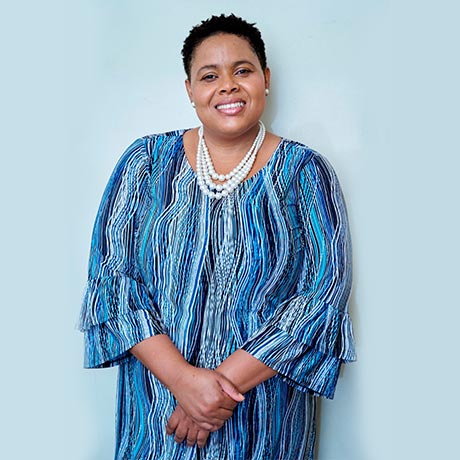
Alecia Bennett-Bryan, is a seasoned Monitoring and Evaluation Specialist with 15+ years' experience in Results-Based Management (RBM), Monitoring, Evaluation, and Learning (MEAL). Certified as a Project Management Professional, she has supported international and regional development partners such as USDA, USAID, UNEP, and more in program implementation, monitoring, and evaluation. Alecia excels in environmental management, climate change, justice reform, public health, and international migration projects. She's also a Trainer of Trainers in RBM and MEAL, facilitating capacity-building workshops for various sectors. With a Master's in Sociology and Disaster Risk Management, she's co-authored publications on sustainable development and climate governance.
Alecia Bennett-Bryan
MEL Expert
Alecia Bennett-Bryan, is a seasoned Monitoring and Evaluation Specialist with 15+ years' experience in Results-Based Management (RBM), Monitoring, Evaluation, and Learning (MEAL). Certified as a Project Management Professional, she has supported international and regional development partners such as USDA, USAID, UNEP, and more in program implementation, monitoring, and evaluation. Alecia excels in environmental management, climate change, justice reform, public health, and international migration projects. She's also a Trainer of Trainers in RBM and MEAL, facilitating capacity-building workshops for various sectors. With a Master's in Sociology and Disaster Risk Management, she's co-authored publications on sustainable development and climate governance.

Sara is an accomplished climate change expert with 12+ years of experience in resilience building, disaster & environmental management, climate finance and in the implementation of innovative climate mitigation/adaptation technologies and strategies. Sara is effective in identifying opportunities to finance low carbon and resilient solutions, green/nature-based infrastructure, disaster risk mitigation and environmental conservation. She has extensive experience designing and implementing projects in a wide variety of sectors such as water and wastewater, coastal zone management, energy, tourism, health, blue and circular economy, amongst others.
Sara Valero
Blue Economy Expert
Sara is an accomplished climate change expert with 12+ years of experience in resilience building, disaster & environmental management, climate finance and in the implementation of innovative climate mitigation/adaptation technologies and strategies. Sara is effective in identifying opportunities to finance low carbon and resilient solutions, green/nature-based infrastructure, disaster risk mitigation and environmental conservation. She has extensive experience designing and implementing projects in a wide variety of sectors such as water and wastewater, coastal zone management, energy, tourism, health, blue and circular economy, amongst others.
Strategic Advisor
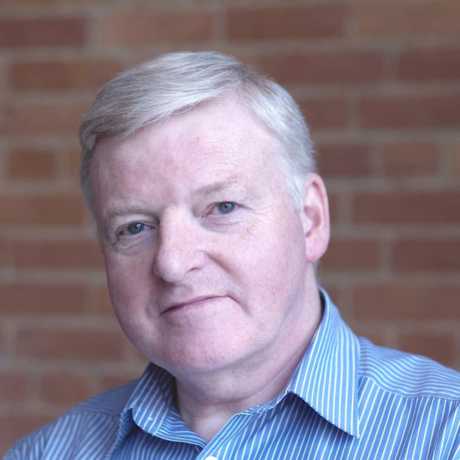
With nearly 30 years’ experience in assessing the impacts of climate change, overlapping with 28 years in the water industry, John has worked on projects in Europe, Africa, North America, Latin America and the Caribbean, the Indian Ocean, the Middle East, Australia, South and South-East Asia for banks, governments, insurers, investors, companies, development partners, NGOs and international organisations. He has also been recently appointed as Professor at the University of Liverpool.
John Firth
Strategic Advisor
With nearly 30 years’ experience in assessing the impacts of climate change, overlapping with 28 years in the water industry, John has worked on projects in Europe, Africa, North America, Latin America and the Caribbean, the Indian Ocean, the Middle East, Australia, South and South-East Asia for banks, governments, insurers, investors, companies, development partners, NGOs and international organisations. He has also been recently appointed as Professor at the University of Liverpool.
Co Founder
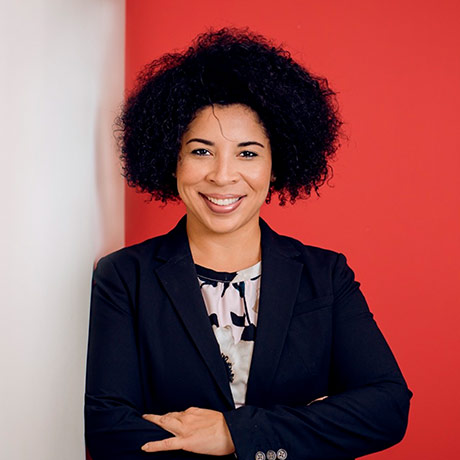
Anaitée is an international development expert with over 12+ years of experience consulting in topics related to sustainable energy, climate change adaptation, climate finance, disaster risk financing, climate risk, and climate transparency. Anaitée has a keen eye for operational detail, project management and stakeholder engagement having collaborated with highly reputable organizations such as the World Bank Group, the Inter-American Development Bank, the World Resources Institute, USAID, and the World Resources Institute, as well as for public and private sector in Latin America and the Caribbean.
Anaitée Mills
Co-Founder
Anaitée is an international development expert with over 12+ years of experience consulting in topics related to sustainable energy, climate change adaptation, climate finance, disaster risk financing, climate risk, and climate transparency. Anaitée has a keen eye for operational detail, project management and stakeholder engagement having collaborated with highly reputable organizations such as the World Bank Group, the Inter-American Development Bank, the World Resources Institute, USAID, and the World Resources Institute, as well as for public and private sector in Latin America and the Caribbean.
Our NETWORK
With over 100 experts located in over 25 countries, mostly within the Caribbean, our growing network of subject matter experts allows us to provide technical and local expertise on a wide variety of fields, including:
- Agri-business
- Aquaculture
- Circular economy
- Climate finance
- Climate resilience
- Coastal conservation
- Coastal planning
- Coastal restoration
- Data collection and analysis
- Gender issues
- Mariculture
- Policy development
- Project management
- Renewable energy
- Sustainable tourism
- Sustainable architecture
- value chain development
- Water management
